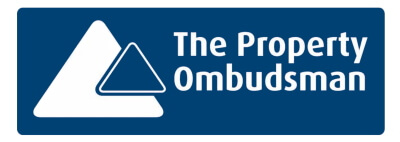Call 020 7183 3022
Traditional Method
of Auction
Traditional auction combines the certainty of an auction sale, along with the marketing effort of the auction house. Reserve prices tend to be lower with traditional auction compared to modern auction.
Call 020 7183 3022 for your FREE sale price estimate

Making the decision to sell your property at an auction
Auctions have long played an important role in the UK for selling almost any type of asset imaginable, whether that’s cars, antiques, artwork, collectibles – and even homes.
All types of leasehold and freehold houses, flats and other residential properties go under the hammer every year, and this remains a popular way to seek a buyer, as Which? says.
The overall process is relatively straightforward, starting when you submit your home for sale through an auction. The auctioneer will create a listing that describes the property and features photographs of its interior and exterior, to generate interest from buyers. Then at a set day and time the auction takes place, at which people can place bids on your home of ever-increasing value. The top bid at the time the auction ends is the winner and will be buying your property.
But there is an important distinction to make between what’s known as the traditional method of auctioning a property, and the modern method. Keep reading this guide to learn all you need to know about selling your house or flat through a traditional auction, as well as advice on alternative ways to seek a buyer, for example by contacting a quick home buying company.
The pros and cons of selling a house or flat via an auction
As with any approach to selling a property, you will discover that there are specific advantages and disadvantages involved with making the decision to sell your home at an auction.
You might be able to tolerate some or all of these drawbacks because you consider that the benefits of selling with an auctioneer outweigh the negative aspects. But if you find that one or more of the cons involved with selling through this method are dealbreakers, later in this guide you can find out details about other ways to sell, such as contacting a quick buyer.
Some of the advantages of selling a home through an auction can include:
- The auctioneer will handle all of the work needed to find a buyer
- You might not need to have viewings of your home in some cases
- Competitive bidding could result in a very high final sale price
- The auction will be at a set day and time, which gives you some certainty
Whilst some of the disadvantages you may get with a property auction are:
- It’s possible nobody bids on your home and it goes unsold
- You’ll need to pay the auctioneer commission, which can be expensive
- Your home might sell at a loss or only break even to what you paid for it
- This is far from the quickest method for selling a property
How does the traditional method of auction work?
The traditional method is very different; the sale is not dependent on just one selected buyer with an asking price stated, instead all prospective buyers are able to make offers and bid against each other.
The whole process of auction takes away control from the buyer – instead of the offer price being potentially reduced by the buyer in the case of an estate agency sale (sometimes at the last minute), with the traditional method the price can only increase! With an auction sale being a legally binding commitment with a large deposit put down by the winning bidder, the risk of the sale falling through is virtually eliminated.
The traditional method is suited to selling all types of property no matter what the condition – including those without an EWS1 form.

How does a traditional auction differ from a modern auction?
It’s possible that when you approach an auctioneer about selling your house or flat, they might offer you not only the traditional method of seeking a buyer but also the modern method of auction.
A quick explanation of the modern method is therefore useful to help you determine whether you might want to use this approach instead of the traditional type of auction.
When you sell a home using the modern method, your property’s listing will be publicly available for a specific number of weeks or months, and have a fixed end date and time. The key difference between the two types of auctions is that people can place bids on your home 24 hours a day, 7 days a week in a modern auction, and the highest value bid at the precise time that your listing expires is announced as the winner and therefore the buyer of your property.
So, unlike a traditional auction where people gather to bid on your home on one day for a limited amount of time, a modern auction is an ongoing process that happens virtually.
Alternative options to seek a buyer for your property
If you have reviewed the various strengths and weaknesses of selling your home through a traditional auction and have determined that you do not want to use this strategy, there are three other well-known approaches that you could take in order to hopefully find a buyer.
The alternative options are selling to a quick home buyer, selling via an estate agent or selling on your own. Just like auctions have their own pros and cons, all three of this different selections have their own advantages and disadvantages, so carefully review the details of all three methods below based on the time that they take, any costs involved, and more.
You might want to consider writing down your top priorities with selling your home, including how fast you would like to find a buyer, whether or not you can accept paying commission on the sale, and your ideal selling price. Then take this information and compare it against the specifics of the three choices and this will help with identifying the closest match to your needs.
Selling to a quick home buyer
Quick home buyers are companies such as LDN Properties that have the money available upfront to purchase almost any freehold or leasehold home, so they don’t have to wait weeks or even months to first secure a mortgage to afford your property. This reduces the typical selling timeline to a few weeks, and this includes exchanging contracts and paying you the proceeds. This makes quick buyers often the fastest way by far to sell almost any category of home.
Honest quick buyers will also never charge an owner any commission when purchasing their property, which helps with reducing your total selling expenses. Compare this perk to selling through an auctioneer or an estate agent, which are two options that will require that you pay them commission if they manage to sell your home, which would increase your costs.
In addition to the fast pace and no fees, quick buyers are a great choice for people who are trying to sell a property that other buyers might consider to be a “problem” home due to legal issues, ownership rights disputes, structural damage or anything else. Quick buyers promise to give you a fair and fast offer no matter a home’s age, condition, location, shape, size or type.
By way of example, the lengthy list of home purchases that LDN Properties has made in the UK since launching more than 20 years ago includes – but is not limited to – student properties, prefab houses, new build flats, uninhabitable homes, rental properties, houses that do not have a gas safety certificate, flats with squatters, homes with subsidence, and many other situations.
Selling via an estate agent
Or you might be thinking about selling your home using the services of an estate agent. This might be a good choice if you do not want to put much effort into selling your property, because the estate agent will be responsible for the main tasks needed to search for a buyer.
First, the estate agent will create a listing for your house or flat, and then they will advertise this online, in their office and in local newspapers. Then they will schedule viewings that give potential buyers the chance to visit your home and see the inside and outside in person. Finally, they’ll hear offers from buyers and aim to guide one to the exchange of contracts.
But this might be a slow process and you should not be surprised if takes many months, or even more than an entire year, to sell your home this way. And even if someone makes an offer, they could still rescind it later and cause the sale to collapse – and they can do this without facing any penalties, so long as you have not yet exchanged contracts. This would then require that you begin again with trying to find a buyer, which could delay a sale much further.
Remember also that you will need to pay an auctioneer for the work that they do in selling your home, and this is usually through commission that is charged within a range from 1.15 percent to 1.40 percent of your property’s eventual sale price. If you want to keep your costs as low as possible when selling, consider another option such as selling to no-fee quick home buyer.
Selling on your own
The third alternative to selling through a traditional auction would be attempting to sell without any assistance. This means that you have the sole responsibility for putting together a listing, advertising it, organising viewings, hearing offers and trying to get one to a finalised sale.
This is a huge amount of work and it is not something that you can just put to your free time, and it can also be very stressful. For these reasons, you should only think about selling this way if you have previously succeeded with selling properties, or if you have a suitably knowledgeable friend or family member that can help you with the sale at no charge.
Even with such experience, it can take more than a year to sell this way. And this method also shares a problem of selling via an estate agent, in that someone can make an honest offer to buy your home but then later change their mind and cancel it, prompting the sale to collapse. They are able to do this without the risk of penalty if contracts have not been exchanged. And it would extend your selling schedule as you’d have to start over with looking for a buyer.
When you sell this way, you do get the benefit of not having to pay an auctioneer or estate agent any commission, which initially lowers your expenses. But it’s possible this saving might be eliminated by the money you’ll have to spend on advertising your listing and other tasks.
Selling your home via a traditional auction: Frequently asked questions
LDN Properties often gets queries from homeowners about different selling options, and below we’re providing our answers to some common questions about using a traditional auction:
✅ How exactly does a traditional auction work when selling a home?
With a traditional auction, the auctioneer will advertise your property’s listing for a certain amount of time, ahead of hosting the auction on a set day and time. People can place bids on your home during the auction, and the top bid at the time the auction ends will be deemed the winner and therefore the person that will be purchasing your property.
✅ What is the difference between a traditional home auction and a modern auction?
The modern method of auction involves giving people the chance to place bids on your home 24 hours a day, 7 days a week during the entire time that the listing for your property is active. The listing will be advertised for many weeks or months, and the highest value bid at the exact time that the listing expires will be named as the winner of the auction and person buying your home.
✅ What are some of the benefits of selling a property via an auction?
There are a few advantages that you might experience when deciding to use an auction for selling your property, including the fact that you’ll have minimal work to do because the auctioneer will be responsible for handling most of the tasks involved. And if your home is in high demand then it might attract a lot of bids and result in a decent profit from the sale.
✅ What are the downsides of using an auction to sell my flat or house?
You will be required to pay the auctioneer commission if they manage to sell your property, and this will be deducted from the final sale proceeds, in turn increasing your expenses. Another drawback of selling this way is that it can take a long time, possibly many months. And note also that you might get zero bids on your home, which would mean that it does not sell.
✅ What other options are available for trying to sell my property?
If you eventually decide that you do not want to use an auction to find a buyer for your home, there are a few other methods available. You could enlist the support of an estate agent to sell your home, you could try selling without any assistance, or you could sell to a quick property buyer. All three of these methods have their own advantages and disadvantages.
✅ What is the fastest way that I can find a buyer for my home?
The speediest option for selling almost any type of property is getting in touch with a quick home buyer such as LDN Properties because the entire timeline should only be a handful of weeks, and that includes exchanging contracts and paying you the sale proceeds. Selling via an auctioneer, an estate agent or on your own can tall take several months at least.
✅ Does every method of selling a house or flat require that I pay commission?
No, you will only have to pay commission if you decide to sell your home using the services of either an auctioneer or an estate agent. But if you instead opt for selling your property without the help of one of these third parties, or if you sell to a zero-commission quick home buyer like LDN Properties, then you will not have to worry about having to pay any fees.
To find out if your property and personal circumstances are suited to the traditional method of auction, call us on 020 7183 3022 for a no-obligation chat.


LDN Properties Limited, Linen Hall, 162 Regent St. London W1B 5TD
Company No. 04636129. ICO No. Z7733416. Ombudsman No. D12463.
Copyright 2003 to 2024